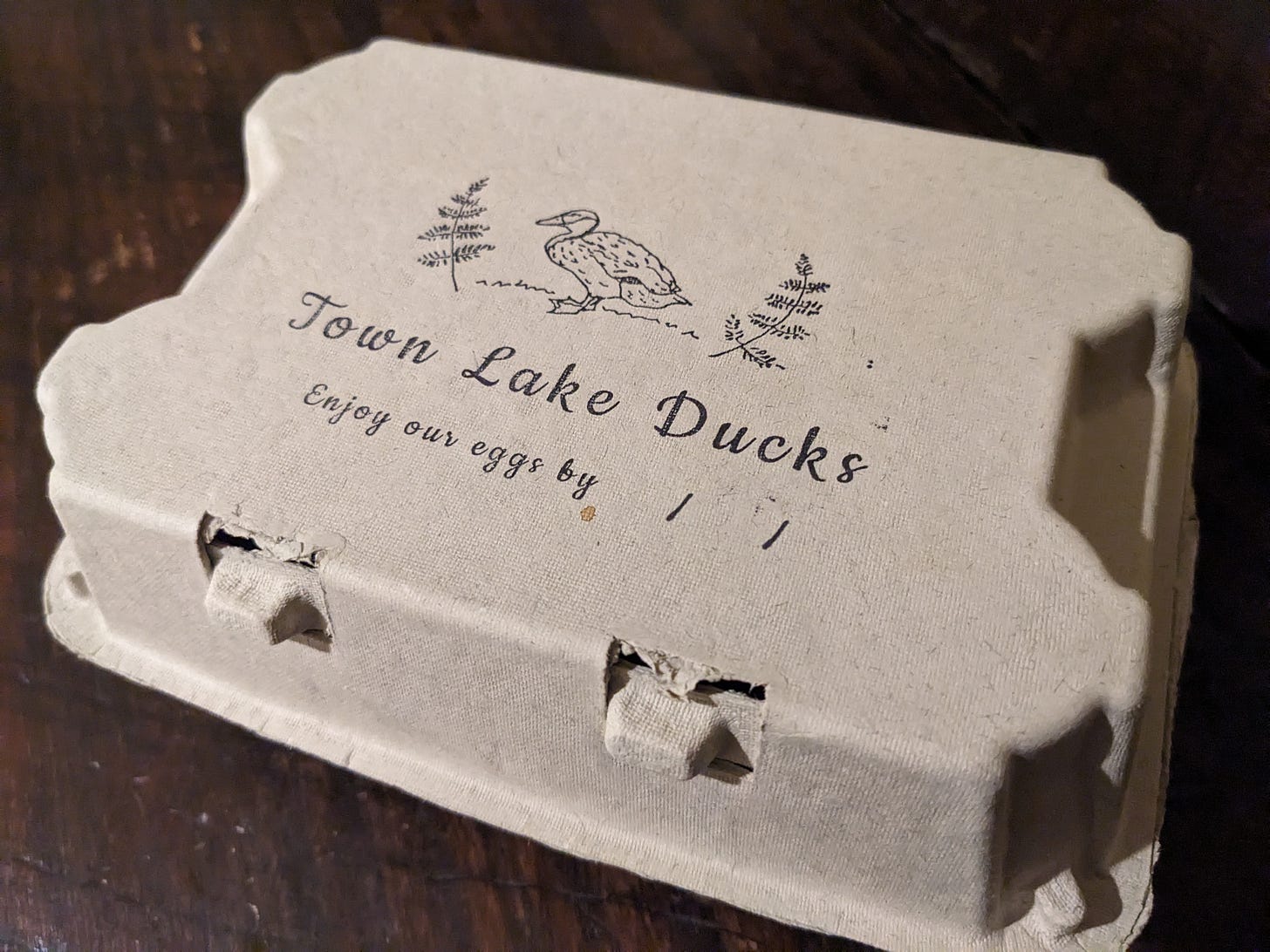On selling eggs
Need a checklist
Here at Town Lake, we have a few ducks. My wife wants to get more ducks and sell eggs, and wants to know the requirements to do so. Voila…
Chatham Farmers Market
They require an application, with an option to apply for membership or to be a guest vendor. It costs $35 to apply, $65 for membership (optional if attending less than 16 markets per year), and $10 each week at the market. As part of the process, there will be a farm or site visit before being accepted to the market.
There are also rules and regulations (last updated 2021). Of note,
Regular spaces are allocated based on prior year market participation, with preference given to members.
Guest vendors are assigned a space each week based on availability, first come first served.
Arrive at least 20 minutes before open, can’t leave early.
Egg sales only from birds you own.
“Organic” as a label must meet the requirements of the National Organic Program.
Farm and sale records may be requested by the board at any time, this could include sale receipts, birth and mortality records, feed, medical records, and “etc.”
North Carolina Requirements
An excellent resource for this, from which I’m summarizing, is the NC State Extension’s helpful article “Explaining the North Carolina Egg Law for Producers with Small Flocks” (link). The primary regulator in our circumstance would be the North Carolina Department of Agriculture and Consumer Services (NCDA&CS).
Grading and size/weight: eggs may be sold without grading and size/weight classification if selling less than 30 dozen eggs per week. Such eggs must be labeled “Ungraded Eggs.”
Cracked/checked eggs: may not be sold (a crack is a break in the shell and membrane, a check is a break in the shell but not the membrane).
Repackaging: this is allowed when eggs are sold directly producer-to-consumer. Otherwise, repackaging is prohibited; i.e., once the eggs are in their carton, they cannot be moved to a new carton, or have individual eggs swapped out, etc.
Carton: must display grade, size/weight class; the word “eggs” (in our case, “duck eggs”); count of eggs; name and address of packer.
The word “Fresh” means Grade A or AA, and you cannot use other descriptive terms.
If the carton is reused, must be clean, unbroken, and free of foul odor; any non-applicable/outdated information has to be blacked out.
Invoices: must provide written invoice to buyers, to include date of sale, name and address of seller, name of purchaser, quantity sold, grade (or “ungraded”), size/weight class; must keep on file for 30 days.
Advertising: any advertisement for sale must obviously display the grade and size/weight (can’t put it in fine print).
Sanitation: maintain facilities “equal to food establishments” (note below), store eggs in proper environments protected from foreign matter, use clean and unbroken packaging, use a sanitary method of cleaning (if needed).
Temperature: store and transport 45 degrees or less, without freezing.
Inspection: NCDA&CS can come inspect.
Stop-sale: can’t sell eggs if ordered to stop by the NCDA&CS.
Registration: small producers are exempt from registration with NCDA&CS (link).
Assumptions
The comment about sanitation requirements including “equal to food establishments” is unclear. As best I can tell, it’s a general requirement that mostly overlaps with the other requirements in any specifics that I can find.
There is a requirement that the word “Fresh” can only be used to describe Grade A or AA eggs. If we sell eggs, we would be under the 30 dozen eggs/week threshold and would not be required to grade the eggs, so I assume we cannot use the term “Fresh.”
Regarding “invoices,” it’s unclear to me if there are exceptions to this. It might only apply to sales to restaurants, groceries, and at a farmers market. That said, the Chatham Mills Farmers Market requirements to include a note that they may request sales records at any time, so seems like a general good practice.



Is it a yes on egg selling then? How can you not with such a cute label??